Con Funk Shun
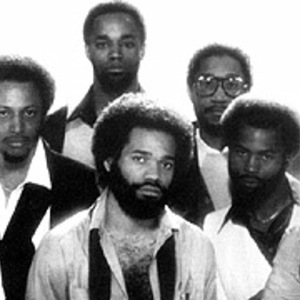
- Genre:
- R&B
- Meta styles:
- Contemporary R&B, Soul
- Styles:
- Funk, Quiet Storm
The Early Years Con Funk Shun was formed in Vallejo, California by high-school classmates Louis A. McCall and Michael V. Cooper. With Louis on drums and percussion and Michael providing lead vocals and lead guitar, the group included Karl "Deacon" Fuller (trumpet), Paul "Maceo" Harrell (saxophone/flute) Cedric Martin (bass Guitar), Danny "Sweet Man" Thomas (keyboards), and Felton "Slyde Clyde" Pilate (trombone/lead vocals).
Originally named Project Soul, the group became a backup band for the Stax Records artists The Soul Children in the early 1970s Renaming themselves Confunkshun, the group moved to Memphis, Tennessee and became one of the label's most sought-after studio bands. They supported themselves by performing throughout the mid-South and Japan at clubs and colleges, along with such bands as, Brief Encounter, Chocolate Funk, Brick, The Dazz Band, and The Mighty Majors. They came to the attention of Estelle Axton and recorded an album and several singles on her Fretone Records label.
The Mercury Records Years
By 1976, Con Funk Shun, was one of the most popular groups in the South but still had not secured a major recording deal. That all changed in July 1976 when Mercury Records A&R man Jud Phillips finally signed the group to a major recording contract. By that time, drummer Louis McCall's wife, publicist/songwriter Linda Lou McCall, had "tweaked" the spelling of the band's name (originally "Confunkshun"), and their first album, "Con Funk Shun", was released later that year.
The band's second album Secrets was released in 1977 to critical and commercial success. Their first hit single was "Ffun", written by Michael Cooper rose swiftly up the charts and landed at "#1 With A Bullet" on Billboard magazine's Top Soul Singles chart in July 1977. Over the course of 10 years, Con Funk Shun recorded 11 albums with Mercury, with five of them achieving "Gold album" status (selling in excess of 500,000 units). The band performed to sold-out coliseums all over the country. They had numerous Top 40 hits including "Chase Me", "Love's Train", "Straight From The Heart", and "Shake & Dance With Me". They recorded their milestone album, "7" in 1981, the seventh album for seven bandmembers who had been together since their teens. It included "California 1", "Straight From The Heart", "Body Lovers" and the Billboard Top 20 Soul Single, "Bad Lady".
The Later Years
In the early 1980s, sagging sales and poor support from their record company was beginning to cause tension between the boyhood friends. In addition, lead singer/songwriters Michael V. Cooper and Felton Pilate began to try to assert more control over the band. Co-founders McCall and Cooper were often at odds with each other. Cooper, an excellent musician and writer, had always resented McCall's business acumen and negotiating skills (McCall and his wife, Linda Lou McCall, were responsible for booking the band's first major tour in 1977, which resulted in the group's national success and the first of their numerous gold albums). While McCall usually deferred to Cooper on artistic issues, he did not get the same support from Cooper on business decisions. McCall had frequently been voted group leader by the other members, each time causing the chasm between Cooper and the other members to grow wider. Pilate often sided with Cooper but since the band operated on the quorum principle of "participatory democracy", their suggestions were often out-voted by the other members.
"Burning Love", Con Funk Shun's last album with Mercury, was recorded without lead singer/songwriter, Felton Pilate, who left the group in 1986 after a physical altercation with McCall. Melvin Carter, a frequent collaborator of Con Funk Shun, replaced Felton for their final album, "Burning Love". The same year, the original group was essentially disbanded with Michael V. Cooper leaving for a solo career. Louis McCall also left to become a consultant and event producer with clients such as M.C. Hammer, Danny Glover and Harry Belafonte, and to join his wife in marketing such contemporary artists as Eminem, Puff Daddy (now "Diddy"), Mya, and the Black Eyed Peas. Con Funk Shun officially disbanded after their last album with Mercury in late 1986. Cooper went on to release a few solo albums with Warner Bros. Sales were disappointing but he did manage to have a few hits with "Prove My Love" and "Shoop Shoop". One of the first musicians ever to have a home studio, Felton Pilate went on to become a successful producer and musical director for rap phenom, M.C. Hammer. He was later nominated in 1991 for a Grammy for co-producing Hammer's hit record "U Can't Touch This" and an Oscar in 1992 for "Addams Groove" on the ""Addams Family"" soundtrack. He, too, made several attempts at solo projects which went nowhere. However, he is still sought out as a producer and consultant.
In the 1990s, lead singers Michael Cooper and Felton Pilate began performing under the group's name with sidemen in place of their former bandmates. They often include original members on brass, Paul Harrell (sax and flute) and Karl Fuller (trumpet). Although missing the tightness of its legendary rhythm section of McCall (drums), Thomas (keyboards), and Martin (bass), the reconstituted group still performs at "old school" concerts and festivals throughout the country under the moniker "Con Funk Shun, featuring Michael Cooper & Felton Pilate", making no mention of long-time bandmates Harrell and Fuller. The original band's music can still be heard in such recent films as "Gone In 60 Seconds", "Next Friday", and "American Pimp", which was featured at the 1999 Sundance Film Festival. Ironically, one of the memorable characters in "American Pimp" was John "Rosebudd" Dickson, a childhood friend of drummer, Louis A. McCall. They played in the Vallejo High School band together and remained friends for life.
Tragically, co-founder/drummer McCall was murdered on June 25, 1997 in Stone Mountain, Georgia in a home invasion robbery. The case is still unsolved. With the exception of Felton, all of the other members of Con Funk Shun still reside in the San Francisco Bay Area.
- Sort by
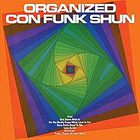
Organized Con Funk Shun
- Release date:
- Jun 06, 2025

More Than Love
- Year:
- 2015
- Tracks:
- 14
- Bitrate:
- 320 kbps

Your Night (CDS)
- Year:
- 2014
- Tracks:
- 1
- Bitrate:
- 320 kbps
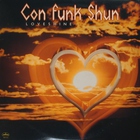
Loveshine
- Year:
- 2014
- Tracks:
- 9
- Bitrate:
- 320 kbps
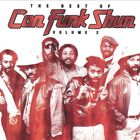
The Best Of Con Funk Shun Vol. 2
- Year:
- 1996
- Tracks:
- 16
- Bitrate:
- 320 kbps
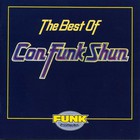
The Best Of
- Year:
- 1993
- Tracks:
- 17
- Bitrate:
- 320 kbps
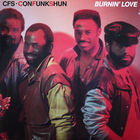
Burnin' Love
- Year:
- 1986
- Tracks:
- 8
- Bitrate:
- 320 kbps
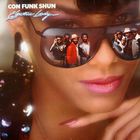
Electric Lady
- Year:
- 1985
- Tracks:
- 8
- Bitrate:
- 320 kbps
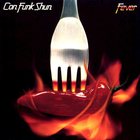
Fever (Vinyl)
- Year:
- 1983
- Tracks:
- 8
- Bitrate:
- 320 kbps
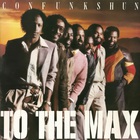
To The Max
- Year:
- 1982
- Tracks:
- 9
- Bitrate:
- 320 kbps
 Cameo 35
Cameo 35 Funkadelic 35
Funkadelic 35 Ohio Players 30
Ohio Players 30 Parliament 17
Parliament 17 The J.B.'s 19
The J.B.'s 19 B.T. Express 8
B.T. Express 8 Bernie Worrell 9
Bernie Worrell 9 Bootsy Collins 27
Bootsy Collins 27 Brick 10
Brick 10 Charles Wright 5
Charles Wright 5 Dyke & The Blazers 4
Dyke & The Blazers 4 Graham Central Station 13
Graham Central Station 13 Larry Graham 2
Larry Graham 2 Mass Production 11
Mass Production 11 P-Funk All Stars 2
P-Funk All Stars 2 Slave 14
Slave 14 ADC Band 2
ADC Band 2 Brides Of Funkenstein 3
Brides Of Funkenstein 3 The Fatback Band 27
The Fatback Band 27 Zapp 11
Zapp 11 Allspice 1
Allspice 1 Charlie Wilson 16
Charlie Wilson 16 Isley Jasper Isley 3
Isley Jasper Isley 3 L.T.D 8
L.T.D 8 Mystic Merlin 3
Mystic Merlin 3 Peaches & Herb 16
Peaches & Herb 16 Rick James 26
Rick James 26